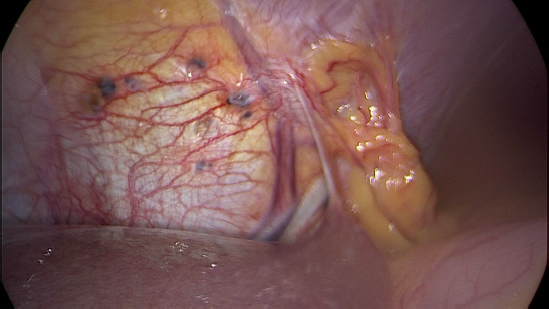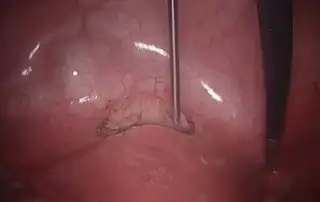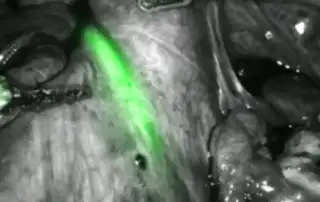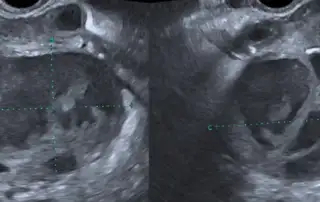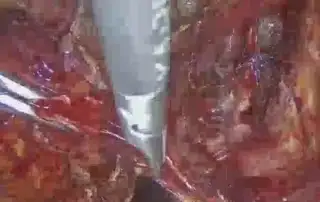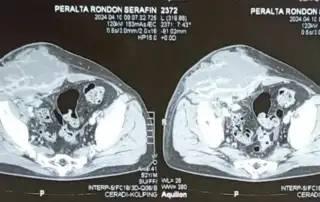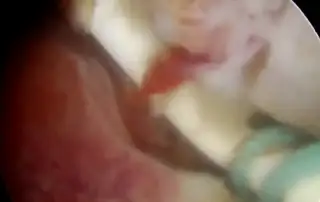The International Society for Gynecologic Endoscopy (ISGE) is delighted to announce its upcoming annual congress, scheduled to take place in the picturesque locale of Zanzibar from May 21-24, 2025. This year’s congress holds particular significance as it marks a historic milestone: for the first time, a woman will assume the presidency of ISGE. Continue reading introduction …
Diaphragmatic endometriosis under the heart / Endometriosis awareness ribbon / Endo-march
Index: TheTrocar Volume 6 – Issue 1. 2025
Introduction
- Zanzibar 2025.
By Guenter Noé
Article list
- The Role of Robotic Surgery in Gynecology: Advancing Precision and Outcomes in Complex Procedures
Abhishek Mangeshikar
DOI: 10.36205/trocar6.2025001 - Trans abdominal cerclage for cervical incompetence: a simplified laparoscopic approach Result of 104 cases continuous series
Antoine Watrelot
DOI: 10.36205/trocar6.2025002 - Pelvic inflammatory disease in postmenopausal women – is that common ?
Francisca Garcia Magno
DOI: 10.36205/trocar6.2025003 - Hybrid Resolution of Abscessed Appendico- Cutaneous Fistula: Case Report
Edwin Cristian Rivas
DOI: 10.36205/trocar6.2025004 - A Modified Hysteroscopic suture fixation of LNG-IUS: a case report video article
Ramesh Bettaiah
DOI: 10.36205/trocar6.vid25001 - Laparoscopic Reverse Technique in Excision Surgery for Deep Endometriosis: Natural Orifice Specimen Extraction Surgery (NOSES) (Video Article)
Lucia Chaul
DOI: 10.36205/trocar6.vid25002
Full articles open access
Trans abdominal cerclage for cervical incompetence: a simplified laparoscopic approach – Result of 104 cases continuous series
DOI: 10.36205/trocar6.2025002
The Role of Robotic Surgery in Gynecology: Advancing Precision and Outcomes in Complex Procedures
DOI: 10.36205/trocar6.2025001
Pelvic inflammatory disease in postmenopausal women – is that common?
DOI: 10.36205/trocar6.2025003
Laparoscopic Reverse Technique in Excision Surgery for Deep Endometriosis: Natural Orifice Specimen Extraction Surgery (NOSES) (Video Article)
DOI: 10.36205/ trocar6.vid25002
Hybrid Resolution of Abscessed Appendico- Cutaneous Fistula: Case Report
DOI: 10.36205/trocar6.2025004
A Modified Hysteroscopic suture fixation of LNG-IUS: a case report video article
DOI: 10.36205/ trocar6.vid25001
Zanzibar 2025
The International Society for Gynecologic Endoscopy (ISGE) is delighted to announce its upcoming annual congress, scheduled to take place in the picturesque locale of Zanzibar from May 21-24, 2025. This year’s congress holds particular significance as it marks a historic milestone: for the first time, a woman will assume the presidency of ISGE.
Dr. Anneli Linnamägi, hailing from Seinäjoki, Finland, is set to become the new president. With an illustrious career as an obstetrician-gynecologist and a specialist in minimally invasive gynecological surgery, Dr. Linnamägi has been an integral part of ISGE’s leadership. Her previous roles include serving as a board member, secretary, and most recently, vice president. Her dedication to advancing gynecologic endoscopy is evident through her active involvement in the society’s learning platform and her commitment to training and lecturing.
As we welcome Dr. Linnamägi to her new role, we extend our heartfelt gratitude to Dr. Eddy Hartono of South Sulawesi, Indonesia, for his unwavering commitment during his two-year tenure as president. An esteemed obstetrician-gynecologist and gynecological surgeon, Dr. Hartono has been instrumental in enhancing ISGE’s presence, particularly across Asia. His leadership has fostered greater collaboration and knowledge exchange within the region, strengthening the society’s global network. We are fortunate that Dr. Hartono will continue to lend his expertise to the Executive Committee as immediate past president, ensuring continuity and ongoing support for ISGE’s mission.
We eagerly anticipate celebrating these leadership transitions and the continued advancement of gynecologic endoscopy at our forthcoming congress in Zanzibar.
The integration of robotics into surgical education is a growing trend in gynecologic endoscopy, and ISGE’s initiative to incorporate robotics into its program in Zanzibar reflects this global movement. Robotics has become a focal point at medical congresses, given its potential to enhance surgical precision and patient outcomes. However, existing literature presents a mixed perspective on its adoption, particularly in emerging and developing countries. While studies highlight the benefits of robotic-assisted surgery—such as reduced blood loss, shorter hospital stays, and improved ergonomics for surgeons—accessibility remains a critical concern. The high cost of robotic systems, limited training opportunities, and the need for extensive infrastructure present challenges in regions where conventional laparoscopic and vaginal surgery are still being optimized. For ISGE, this creates a balancing act: while the society aims to promote cutting-edge surgical advancements, it must also ensure that foundational techniques in gynecologic surgery remain a priority. The heterogeneous availability of robotic systems across different healthcare settings means that educational efforts must be tailored, providing knowledge on robotics while reinforcing skills in traditional and laparoscopic approaches. By addressing these disparities through adaptable training models, ISGE can bridge the technological gap while maintaining its commitment to accessible and effective gynecologic surgery.
Guenter Noé
Editor in chief

